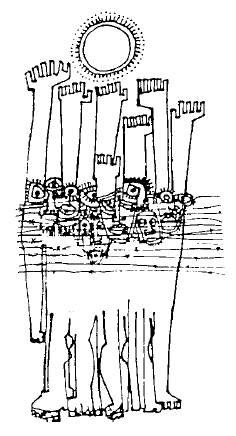 Standing Up Against Injustice
Standing Up Against Injustice
August 10th is Prisoners' Justice Day. A day when prisoners across the country go on a one day hunger strike and work stoppage to protest the deaths of all the men and women who die at the hands of an apathetic prison system. It was started 26 years ago by prisoners in a maximum security prison in Ontario after two prisoners died in solitary confinement. One of these prisoners, Eddie Nalon, was in solitary because he had refused to work, and the other, Bobby Landers, was in solitary because he was part of a group of prisoners who were trying to organize a prisoners strike. For prisoners, fasting and refusing to work are the only means of peaceful protest.
Anti-prison work and social/political movements are more closely related than you might think. One of the fastest growing prison populations in this country is youth detention. The media would have us believe that the youth of today are a violent lot, but we know that this is not true. What we know is true is that the youth of today have found a voice - and it is a voice of dissent, and they are locking up people in even greater numbers for it - environmentalists, protestors, community and anti-globalization activists.
Criminalizing the political is nothing new. They did it to the Black Panthers, the American Indian Movement, the FLQ and the anti-nuclear movement. The media coverage of recent anti-globalization protests bear a striking resemblance to the coverage of the protests of the 60's and 70's. Then as now the prison system is being used as a means for social control. Not only as a way to quash any movement for social change, but as a way to protect a capitalist society from the poor, the marginalized and the dispossessed. Government legislation around wages, and panhandling plus cuts to welfare and social programs will only serve to further criminalize young people. This time we need to be the ones who say no to prisons - we need to be the ones find the solutions to the problems in our communities. In this country almost 200 prisoners die every year - the leading causes of death are suicide and medical neglect. Some of the conditions that lead to prisoner deaths are; overcrowding, isolation, involuntary transfers and inadequate health care. Every August prisoner support groups organize public education events to draw attention to the conditions inside prison. Youth and Restorative Justice activist Anna McCormick will be speaking at the Prisoner's Justice Day Memorial Rally on August 10th.
..."I was in a federal prison a couple of years ago for a social event. I as visiting a boy who was like a little brother to me, and who was transferred to adult court (and was doing adult time) for a crime he committed. Just before dinner, all prisoners had to return to their cells for "count". As visitors and/or family members, we all waited for their return so we could have dinner together. We waited, and waited, and waited. They never returned. During count, the guards discovered that one prisoner, who was not part of the social (no one came to visit him), had killed himself. I remember the reactions: children asked a million questions of their mothers, as they were being shuffled out of the prison. Family members cried because they had to cut their quarterly visit to their loved one short. Visitors wanted answers from the guards. No responses were given, and no responsibility was taken. Prisoners returned to their cells, got locked down, and were once again reminded of (if by chance they had managed to temporarily divert their focus from) the unhealthy environment in which they live. The air was filled with an eery, hopeless sense of doom, violence, and death.
Even though I didn't know this man, I remember feeling an overwhelming sense of loss, grief, and sadness. I thought to myself: How might he have felt not having a visit on this day, while he witnessed the excitement in some of his fellow prisoners who left their cells for a few hours to enjoy time with their families? What was he dealing with? What were his last thoughts? What put him over the edge? What could I have done? What could we have done, as a community? My thoughts then turned to anger, as I questioned the system that allows this to happen. What have we done, as a society that is known to be one of the most peaceful societies in the world, in electing a government that supports the injustices perpetrated by this penal system? What kind of hypocrites are we? We have a responsibility to stand up against injustice, because injustice anywhere is a threat to justice everywhere. If we remain indifferent, we only indict ourselves."
-excerpt by Anna McCormick